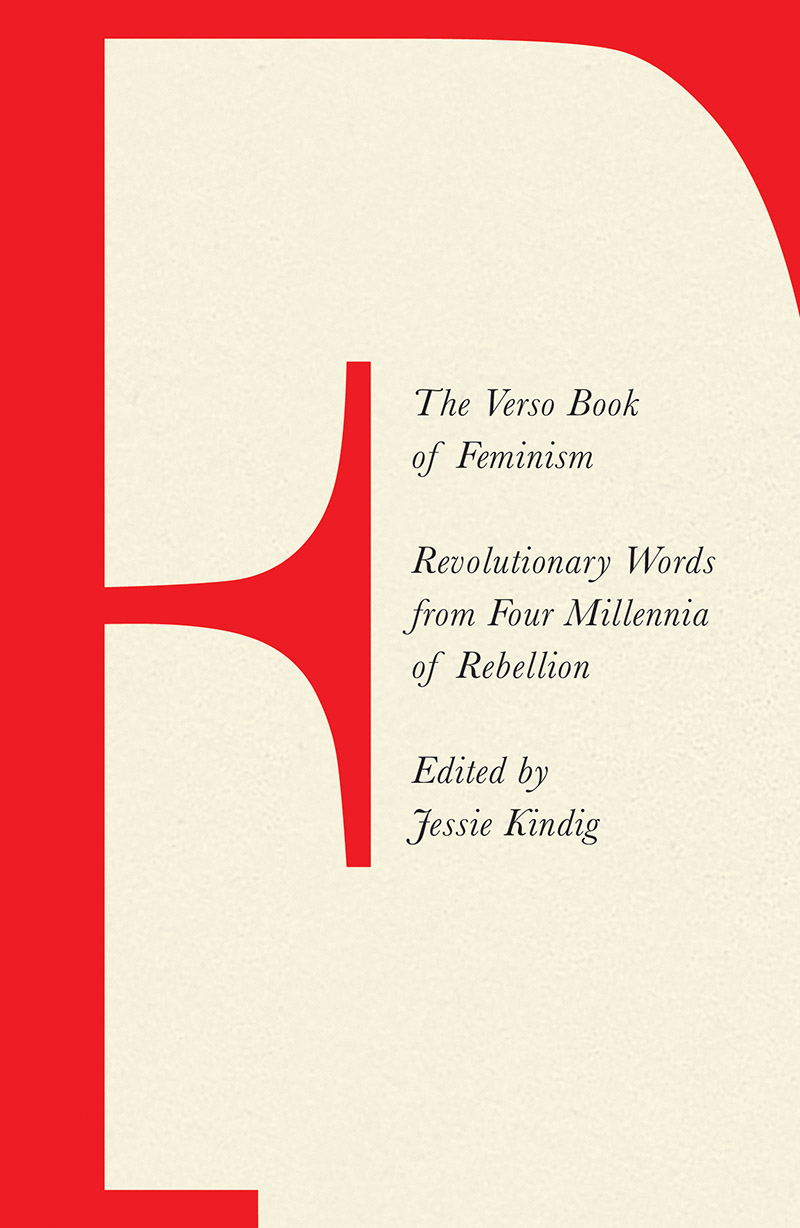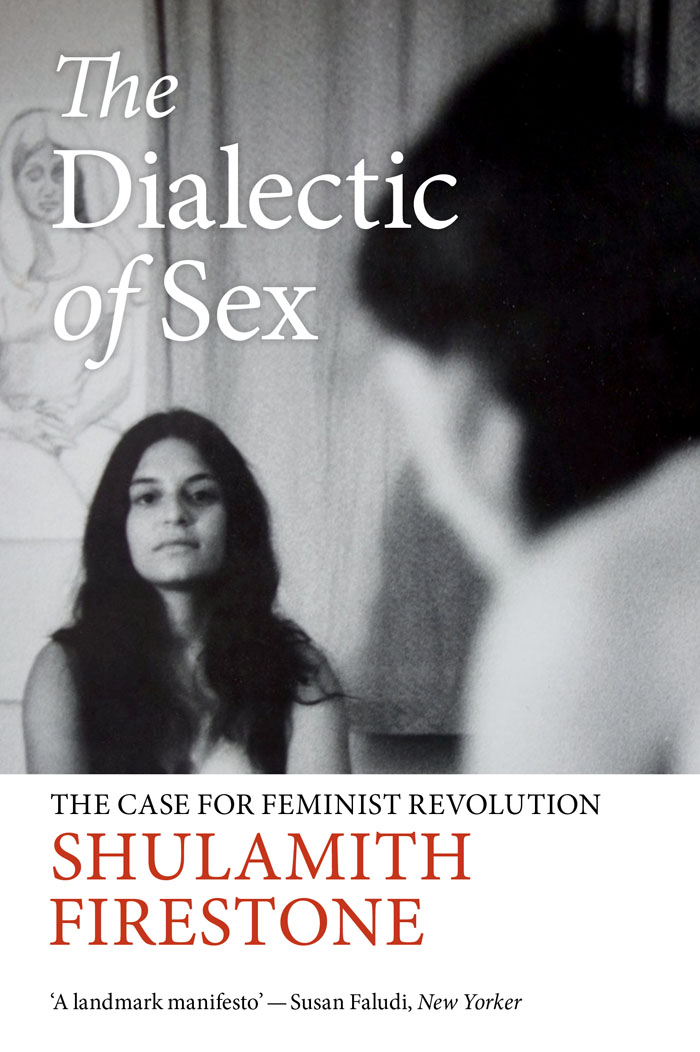A Socialist Feminist Reading List

Enjoy 40% off ALL these books until March 10, 2023 at 11:59PM EST!
To celebrate Women's History Month and International Women's Day we bring you this globally focused feminist reading list. Featuring history, theory, manifesto and personal narrative, all of these books advance ideas of revolutionary feminism.
See our Top 10 books to read for IWD, and other reading lists and blog posts on feminism.
A fiery feminist manifesto from the Chilean performance collective who led the rallying cry for today's mass feminist movement across South America.
The work of love is a feminist problem, and it demands feminist solutions.
A haunting, intimate account of the women and men who built a feminist revolution in the middle of the Arab Spring.
Through the revolutionary careers of five prominent socialist women active in the nineteenth and twentieth centuries, Kristen Ghodsee tells the story of the personal challenges faced by earlier generations of radicals.
An incisive case for trans justice from a powerful new voice.
In the era of #MeToo and mass incarceration, The Feminist and the Sex Offender makes a powerful feminist case for accountability without punishment and sexual safety and pleasure without injustice.
What if family were not the only place you might hope to feel safe, loved, cared for and accepted? What if we could do better than the family?
Focusing on migration, neo-imperial militarism, the state, the prison industrial complex, social reproduction and many other pressing themes, the range of feminisms traversed in this volume show how freedom requires revolutionary transformation in the organisation of the economy, social relations, political structures, and our psychic and symbolic worlds.
The first collection of its kind, Organize, Fight, Win brings together three decades of Black Communist women’s political writings. It makes clear how Black women fundamentally shaped, and were shaped by, Communist praxis in the twentieth century.
In this classic work Engels argued that matriarchal communal societies had been overthrown by class society and its emphasis on private, not communal, property and monogamous, rather than polygamous, sexual organisation. This historical development constituted “the world-historic defeat of the female sex.”
In Feminist City, through history, personal experience and popular culture Leslie Kern exposes what is hidden in plain sight: the social inequalities built into our cities, homes, and neighborhoods. Kern offers an alternative vision of the feminist city. Taking on fear, motherhood, friendship, activism, and the joys and perils of being alone, Kern maps the city from new vantage points, laying out an intersectional feminist approach to urban histories and proposes that the city is perhaps also our best hope for shaping a new urban future.
Aside from Mary Prince, enslaved West Indian women had few opportunities to record their stories for posterity. Yet from their dusty footprints and the umpteen small clues they left for us to unravel, there’s no question that they earned their place in history. Pick any Caribbean island and you’ll find race, skin colour and rank interacting with gender in a unique and often volatile way. Moreover, the evidence points to a distinctly female role in the development of a culture of slave resistance—a role that was not just central, but downright dynamic.
In this elegant, searching book—spanning science and popular culture; pornography and literature; debates on Me-Too, consent and feminism—Katherine Angel challenges our assumptions about women’s desire. Why, she asks, should they be expected to know their desires? And how do we take sexual violence seriously, when not knowing what we want is key to both eroticism and personhood?
In this powerful memoir Sheila Rowbotham looks back at her life as a participant in the women’s liberation movement, left politics and the creative radical culture of a decade in which freedom and equality seemed possible. She reveals the tremendous efforts that were made to transform attitudes and feelings, as well as daily life.
Making Space is a pioneering work first published in 1984 which challenges us to look at how the built environment impacts on women’s lives. It exposes the sexist assumptions on gender and sexuality that have a fundamental impact on the way buildings are designed and our cities are planned
From three of the organizers of the International Women’s Strike: a manifesto for when “leaning in” is not enough.
How the law harms sex workers—and what they want instead.
The divide between the digital and the real world no longer exists. We are connected all the time. How do we find out who we are in this digital era? Where do we create the space to explore our identity? How can we come together in solidarity?
Originally published in French in 1974, radical feminist Françoise d’Eaubonne surveyed women’s status around the globe and argued that the stakes of feminist struggles were not about equality but about life and death—for humans and the planet. In this wide-ranging manifesto, d’Eaubonne first proposed a politics of ecofeminism, the idea that the patriarchal system’s claim over women’s bodies and the natural world destroys both, and that feminism and environmentalism must bring about a new “mutation”—an overthrow of not just male power but the system of power itself. As d’Eaubonne prophesied, “The planet placed in the feminine will flourish for all.”
Rather than looking at surrogacy through a legal lens, Lewis argues that the needs and protection of surrogates should be put front and center. Their relationship to the babies they gestate must be rethought, as part of a move to recognize that reproduction is productive work. Only then can we begin to break down our assumptions that children “belong” to those whose genetics they share.
Females is Andrea Long Chu’s genre-defying investigation into sex and lies, desperate artists and reckless politics, the smothering embrace of gender and the punishing force of desire.
In these essays, Gornick explores the lives and literature of Alfred Kazin, Mary McCarthy, Diana Trilling, Philip Roth, Joan Didion, and Herman Melville; the cultural impact of Silent Spring and Uncle Tom’s Cabin; and the characters you might only find in a New York barber shop or midtown bus terminal. Even more, Taking a Long Look brings back into print her incendiary essays, first published in the Village Voice, championing the emergence of the women’s liberation movement of the 1970s.
An extraordinary political biography of English suffragist, feminist, and socialist Sylvia Pankhurst.
In this exciting, innovative work, Polish feminist philosopher Ewa Majewska proposes a specifically feminist politics of antifascism. Mixing theoretical discussion with engaging reflections on personal experiences, Majewska proposes what she calls “counterpublics of the common” and “weak resistance,” offering an alternative to heroic forms of subjectivity produced by neoliberal capitalism and contemporary fascism.
What if we took sex out of the box marked “special,” the contents of which are either the worst or best thing a person can experience, and considered it within the complexity of human life in general? In this extraordinary book, and in defiance of the long-standing media obsessions that turn every sexual topic into a morality tale of monsters and victims, shame and virtue, journalist JoAnn Wypijewski does exactly that.
Gago’s feminism is a powerful call to abandon the rhetoric of victimisation, and to instead mount a frontal challenge to both neo-liberal rule and the conservative counteroffensive. Feminist International asks what another theory of power might look like, one premised on our desire to change everything.
Second Wave feminism emerged as a struggle for women’s liberation and took its place alongside other radical movements. But feminism’s subsequent immersion in identity politics coincided with a decline in its utopian energies and the rise of neoliberalism. Now, foreseeing a revival in the movement, Fraser argues for a reinvigorated feminist radicalism able to address the global economic crisis.
In this landmark collection spanning three centuries and four waves of feminist activism and writing, Burn It Down! is a testament to what is possible when women are driven to the edge. The manifesto—raging and wanting, quarreling and provoking—has always played a central role in feminism, and it’s the angry, brash feminism we need now.
A pocket colour manifesto for a new futuristic feminism.
A powerful document of theday-to-day realities of Black women in Britain.
How can we learn to value difference when it is too often enlisted in the service of domination? Hark and Villa make a compelling case for the urgent necessity for a detoxification of feminism as a matter of urgency, and for an ethical mode of living-with the world, that is, living with alterity.
Why do patriarchal systems survive? In this groundbreaking work of feminist theory, Nancy Folbre examines the contradictory effects of capitalist development. She explains why the work of caring for others is under-valued and under-rewarded in today's global economy, calling attention to the organisation of childrearing, the care of other dependants, and the inheritance of assets.
Global in scope, The Verso Book of Feminism shows the breadth of feminist protest and of feminist thinking, moving through the female poets of China’s Tang Dynasty to accounts of indigenous women in the Caribbean resisting Columbus’s expedition, British suffragists militating for the vote to the revolutionary pétroleuses of the 1848 Paris Commune, the first-century Trung sisters who fought for the independence of Nam Viet to women in 1980s Botswana fighting for equal protection under the law, from the erotica of the sixth century and the ninteenth century to radical queer politics in the twentieth and twenty-first.
A feminist movement clashing with China’s authoritarian government.
In Sexuality in the Field of Vision, Jacqueline Rose argues for the importance of sexual difference and fantasy as key concepts through which an interrogation of contemporary theory should be sustained.
A graphic novel of the dramatic life and death of German revolutionary Rosa Luxemburg.
With race and the police once more burning issues, this classic work from one of America’s giants of black radicalism has lost none of its prescience or power.
An extraordinary memoir of transition and transgender politics and culture.
A founding text of transnational feminism.
A groundbreaking attempt to theorise the feminist subject.
“An important contribution to debates around sex and work ... deserves to be read.” – Nina Power
Groundbreaking examination of the birth, development and impact of Feminist consciousness.
“This book is a school of thought.” – Frigga Haug, Das Argument
First published in 1990, Michele Wallace’s Invisibility Blues is widely regarded as a landmark in the history of black feminism. Wallace’s considerations of the black experience in America include recollections of her early life in Harlem; a look at the continued underrepresentation of black voices in politics, media, and culture; and the legacy of such figures as Zora Neale Hurston, Toni Cade Bambara, Toni Morrison,and Alice Walker.
Sensitive but uncompromising socialist-feminist critique of the nuclear family.
“A moving defence of the pleasures and pains of human solidarity.” – Melissa Benn, Guardian
An international bestseller, originally published in 1970, when Shulamith Firestone was just twenty-five years old, The Dialectic of Sex was the first book of the women’s liberation movement to put forth a feminist theory of politics.






















